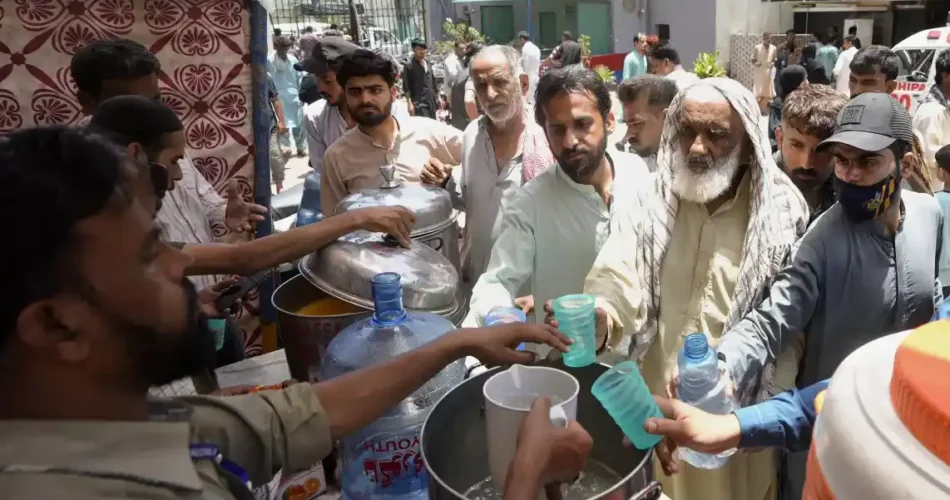ISLAMABAD – Doctors treated hundreds of heat stroke victims in hospitals across Pakistan on Thursday following an intense heat wave that raised the temperature above normal due to climate change, officials said.
The temperature reached 49 degrees Celsius (120 degrees Fahrenheit) the previous day in Mohenjo Daro. The city, known for its archaeological sites, is located in Sindh province, which was badly hit by monsoon rains and devastating floods aggravated by climate change in 2022. The heat wave was expected to last at least a week.
Authorities have urged people to stay in shelter, hydrate and avoid unnecessary travel. But some say they have no choice because they must work to feed their families.
“Pakistan is the fifth most vulnerable country to the impact of climate change. We have witnessed above-normal rainfall, floods,” Rubina Khursheed Alam, climate coordinator to the prime minister, told a news conference in the capital, Islamabad.
Doctors said they had treated hundreds of patients in the eastern city of Lahore, while scores of people were shifted to hospitals in Hyderabad, Larkana and Kacobabad districts in the southern province of Sindh.
“The situation has been worsening since yesterday when heat-affected people started arriving at hospitals in Punjab province,” said Ghulam Farid, a senior health official. Pakistan has set up emergency response centers in hospitals to treat heat-affected patients.
The state ambulance service is now carrying bottled water and ice to provide emergency treatment to heat victims, officials said.
Heat stroke is a serious illness that occurs when a person’s body temperature rises rapidly due to sweltering heat, which can cause some people to become unconscious. Severe heat stroke can lead to disability or death.
Pakistan recorded its wettest April since 1961 this year, with more than double the usual rainfall for the month. Heavy rains killed dozens of people last month while destroying property and crops.
Daytime temperatures are 8°C (46°F) above the May average, stoking fears of flooding in the Northwest due to glacial melt.
The 2022 floods caused extensive damage in Sindh and Balochistan provinces, killing 1,739 people across the country.
The heat wave affected areas in southwest and northwest Pakistan for the time being.
Authorities canceled classes for a week in Punjab. In the city of Lahore, people were seen swimming in the canals by the roadside. Pakistan says that despite producing less than 1% of the world’s carbon dioxide emissions, it suffers a significant share of climate-related disasters.
Alam said erratic changes in weather patterns were the result of human-induced climate change.

